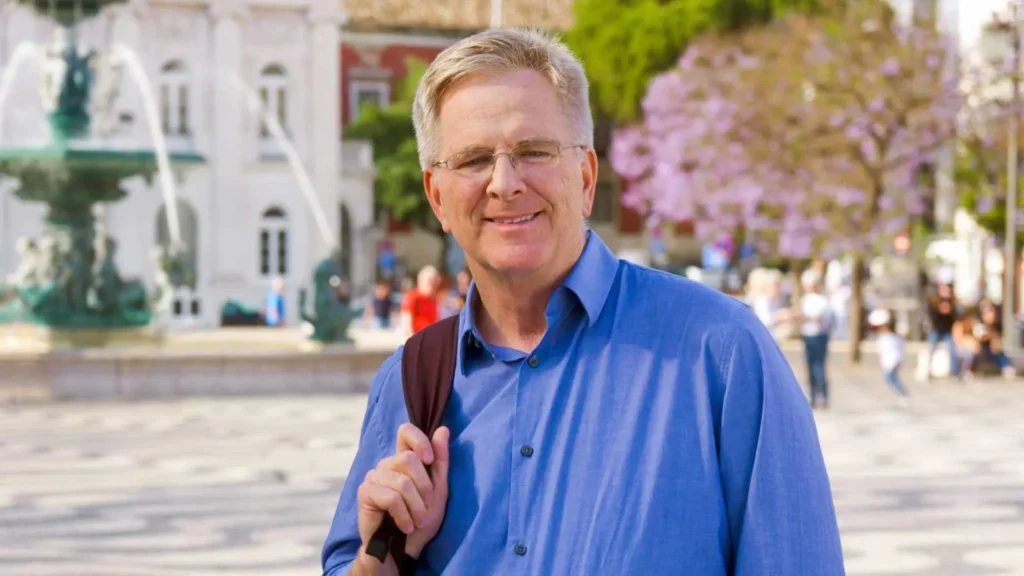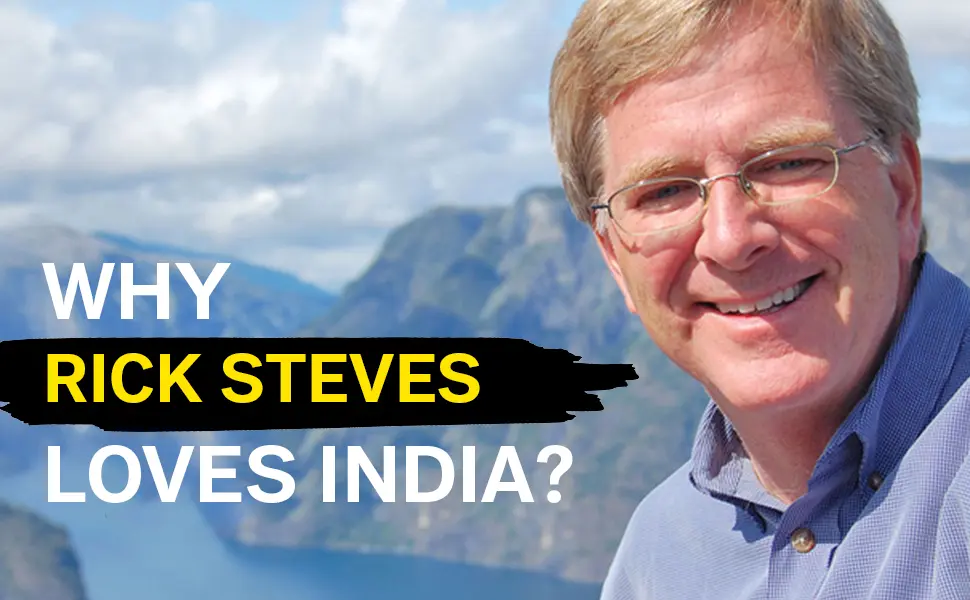Rick Steves Travel Advice: Why He Wants Americans to Explore More in 2025

At a time when the world feels uncertain and overwhelming, many Americans question whether taking a vacation is the right choice. With daily headlines full of global crises, travel can seem like an indulgence — even frivolous. But travel expert Rick Steves believes the opposite is true: this is exactly when Americans need to travel the most.
Rick Steves on Travel During Crisis: A Bold Yet Necessary Act
Rick Steves, a seasoned traveler and tour guide, argues that in moments of stress, travel becomes more than leisure — it becomes a tool for understanding and connection. According to Steves, Americans are often shaped by fear and isolation, especially those who lack firsthand experience of other cultures. “Fear is for people who don’t have passports,” he says. “The flip side of fear is understanding.”
Rick Steves Travel Philosophy: Building Understanding Through Exploration
Steves believes that stepping outside of American borders can reshape perceptions. When Americans venture abroad, they’re exposed to real people with real struggles, joys, and lives — people often misunderstood or misrepresented in the media. By witnessing life in countries like Iran, Palestine, or Cuba, travelers begin to dismantle prejudices and stereotypes.
These journeys, Steves insists, aren’t just about beaches or sightseeing. They’re about learning that despite differences, the world is filled with decent, kind individuals. This broader understanding, he suggests, could even shift how Americans think — and vote.
Travel as a Political and Ethical Act
For Steves, travel isn’t apolitical. In his view, exploring countries that the U.S. government warns against visiting is part of a broader mission to become a global citizen. He sees travel as a political act—a way to engage deeply with the world’s complexities instead of hiding from them.

Travel teaches empathy. It gives Americans a chance to understand economic and political struggles from a ground-level view. This kind of education doesn’t come from textbooks or news channels—it comes from conversations, meals, and shared experiences with people around the world.
From Tourists to Pilgrims: Different Ways to Travel
Rick Steves classifies travelers into three categories:
- Tourists, who seek fun and comfort
- Travelers, who want cultural enrichment
- Pilgrims, who travel with spiritual or reflective goals

He encourages blending all three approaches to create a rich, meaningful journey. “I want to be poetic, thoughtful, and curious,” Steves says. “Travel isn’t just about escaping; it’s about growing.”
Facing Cultural Shock and Embracing Discomfort
One of the most overlooked aspects of travel, according to Steves, is culture shock — something he believes is essential, not problematic. Culture shock is a sign that your worldview is expanding, and it’s something to be embraced, not avoided.
Many travelers only skim the surface of a destination, changing weather but not culture. Steves challenges this. Real travel, he argues, should make you uncomfortable. It should “rearrange your cultural furniture” and challenge ethnocentric thinking.
Travel Reveals the World — And America
Spending extensive time abroad has given Steves a fresh perspective on his own country. Through contrast, he’s learned that the so-called “American way” isn’t the only path to success or happiness. For example, he discovered that different cultures value work-life balance in ways that many Americans might find surprising — and admirable.
Climate-Conscious Travel: Ethics in Action

Steves is also aware of the environmental impact of travel, especially in the era of climate change. But rather than stopping travel altogether, he believes in ethical mitigation. Each year, he imposes a self-directed carbon tax on his company, investing a million dollars in nonprofits that support sustainable farming in the global south For him, this isn’t just about carbon offsets — it’s about making travel part of the solution, not the problem.
Fear vs. Smart Caution: Knowing When and Where to Go
While Steves is a passionate advocate for pushing beyond comfort zones, he also acknowledges that there are reasonable limits. “I wouldn’t go to North Korea,” he admits. He draws a line between irrational fear and smart caution, emphasizing that informed travel doesn’t mean recklessness.
Why Travel Matters More Than Ever
Travel has the power to shift perspectives, dismantle fear, and nurture empathy. In a time when many Americans are retreating into echo chambers, Steves makes a compelling case for getting out, seeing the world, and understanding it firsthand.
According to him, the most valuable souvenir isn’t a trinket or a photo—it’s a broader worldview. That’s what the world needs right now, and that’s why Rick Steves wants Americans to travel more than ever in 2025.




